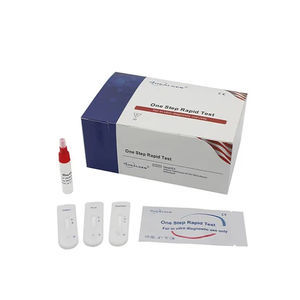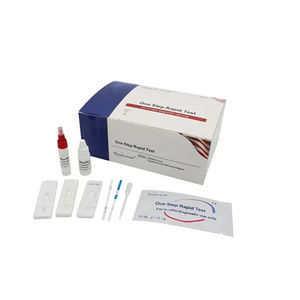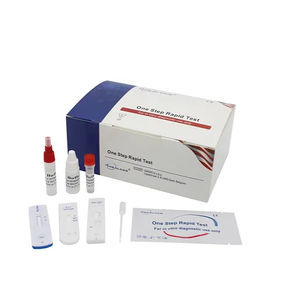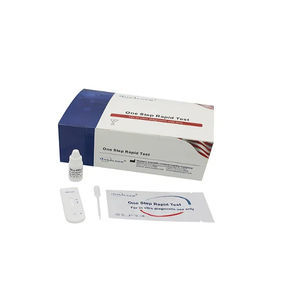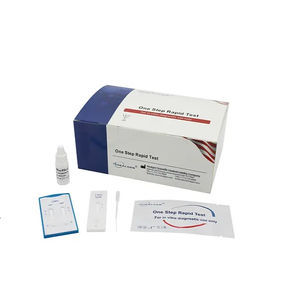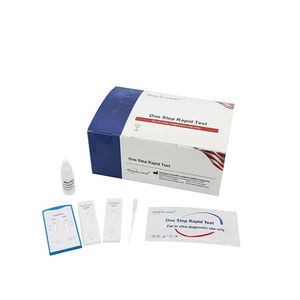
- Laboratory
- Laboratory medicine
- Rapid typhoid test
- Healgen Scientific

- Products
- Catalogs
- News & Trends
- Exhibitions
Rapid typhoid test GCSAL(ST)-602afor antigensSalmonellaserum
Add to favorites
Compare this product
Characteristics
- Applications
- typhoid
- Tested parameter
- for antigens
- Micro-organism
- Salmonella
- Sample type
- serum, plasma, stool, feces, clinical, bone marrow
- Analysis mode
- immunochromatographic
- Format
- cassette
- Result display time
15 min
- Specificity
97.4 %
- Sensitivity
98.7 %
Description
The S. Typhi Antigen Rapid Test Cassette (Feces/Serum/Plasma) is an in vitro qualitative immunochromatographic assay for the rapid detection of S. Typhi antigens in human stool, serum or plasma specimen. The test results are intended to help in the diagnosis of S. Typhi infection and, to monitor the effectiveness of therapeutic treatment.
Typhoid fever is a life threatening illness caused by the bacterium Salmonella typhi, and was observed by Eberth (1880) in the mesenteric nodes and spleen of fatal cases of typhoid fever. It is common in developing countries where it affects about 12.5 million persons annually. The infection is acquired typically by ingestion. On reaching the gut, the bacilli attach themselves to the epithelial cells of the intestinal villi and penetrate to the lamina and submucosa. They are then phagocytosed there by polymorphs and macrophages. The ability to resist intracellular killing and to multiply within these cells is a measure of their virulence. They enter the mesenteric lymph nodes, where they multiply and, via the thoracic duct, enter the bloodstream. A transient bacteremia follows, during which the bacilli are seeded in the liver, gallbladder, spleen, bone marrow, lymph nodes and kidneys, where further multiplication takes place. Towards the end of the incubation period, there occurs a massive bacteremia from these sites, heralding the onset of the clinical symptoms.
The diagnosis of typhoid consists of isolation of the bacilli and the demonstration of antibodies. The isolation of the bacilli is very time consuming and antibody detection is not very specific. Other tests include the Widal reaction.
Related Searches
- Assay kit
- Immunoassay assay kit
- Infectious disease detection kit
- Blood rapid diagnostic test
- Rapid lateral flow test
- Immunoassay rapid diagnostic test
- Molecular test kit
- Cassette rapid diagnostic test
- Rapid virus test
- Respiratory infection test kit
- Serum rapid diagnostic test
- Plasma rapid diagnostic test
- Optical assay kit
- Infectious disease rapid diagnostic test
- Whole blood rapid diagnostic test
- Fluorescence assay kit
- Lateral flow test kit
- COVID-19 detection kit
- Rapid respiratory infection test
- Urine rapid diagnostic test
*Prices are pre-tax. They exclude delivery charges and customs duties and do not include additional charges for installation or activation options. Prices are indicative only and may vary by country, with changes to the cost of raw materials and exchange rates.

